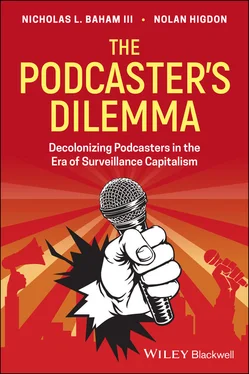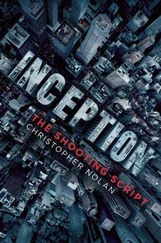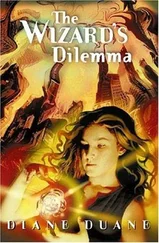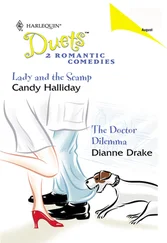We are forever indebted to the crew at Wiley for fostering careful scholarship through a well-executed publication process. Much love and praise are owed to Todd Green, Nicole Allen, Andrew Minton, and Manuela Tecusan.
As educators, we are also very blessed to have an incredible army of students who offer commentary, feedback, proofreading, and other support, all of which left an indelible mark on this text. Every day, the students at California State University, East Bay demonstrate that they are among the most talented, curious, and imaginative actors the world has to offer. We were lucky enough to have a significant number of them put those talents to work in the completion of this project. Thank you Sierra Abel, Marinda Avalos, Michael Bellotti, Barbara De Miranda E Silva, Arsema Habte, Shaghayegh Hatami Far, Lucas Martin, Morgan Martinez, Priscila Martinez, Vina Nguyen, Sean Serrano, Monet Troche, Karmen Yap, Kameil Rancifer, and Gina Marquez.
Similarly, we are privileged to collaborate with numerous organizations: Action Coalition for Media Education, Critical Media Literacy Conference of the Americas, Media Freedom Foundation, Project Censored with its Along the Line podcast, Mount Diablo Peace and Justice Center, Critical Media Project, Real News Network, PropWatch, and Union for Democratic Communication. This project was enhanced by our incredible network of thought-provoking individuals: Adam Armstrong, Robin Andersen, Maximillian Alvarez, Margli Auclair, Phil Auclair, Jorge Ayala, Matt Bailey, Kate Bell, Ben Boyington, Lonny Avi Brooks, Kenn Burrows, Allison Butler, Mary Cardaras, Robert Carley, Aimee Casey, Jamal Cooks, Ian Davis, Lindsay DeFranco, Brian Dolber, Janice Domingo, Andrea Gambina, Noah Golden, Mary Grueser, Doug Hecker, Aaron Heresco, Mickey Huff, Amina Humphrey, Linda Ivey, Dorothy Kidd, Grant Kien, Mickey Levitan, Dylan Lazaga, Jen Lyons, Kalemba Kitzo, Renee Childs, Steve Macek, Susan Maret, Emil Marmol, Abby Martin, Desiree McSwain, Sangha Niyogi, Peter Phillips, Albert Ponce, Susan Rahman, Kayla Rivara, Reina Robinson, Kayla Rivara, Andy Lee Roth, Danuta Sawka, Mitch Scorza, T. M. Scruggs, Jeff Share, Lauren Shields, James Stancil, Colleen Sweeney, Alison Trope, Obed Vasquez, Wanda Washington, and Rob Williams. Thank you all for your contributions, guidance, and friendship.
The germ for this project emerged during an early morning discussion after a recording of Along the Line . Had it not been for Along the Line , this book would not have come to fruition. Thank you to the Media Freedom Foundation for funding the program: we could not have done it without your support. Thank you to everyone who made Along the Line possible: Janice Domingo, our fearless co-host and sound engineer; Mickey Huff, our producer; Dylan Lazaga, our director; all the guests who graced us with their presence; and all our listeners. Thank you all for your continued support.
Lastly, we owe much praise to the decolonial podcasters surveyed in this text. Your content both inspired and entertained us. Your candid dialogue and your attention to pertinent issues and details reshaped our lives and inspired our attitudes and behavior in positive ways. Thank you for making this space possible.
Having a radio meant seriously going to war.
Frantz Fanon, A Dying Colonialism (1965)
Broadcasting from Oakland, California, “the center of the known universe,” Alicia Garza’s podcast Lady Don’t Take No! begins with the pronouncement: “This show is pro-Black, pro-Queer, proudly Feminist, and pro-Do-Whatcha-Like. Every week, you are going to get the best of what goes on in my head, what we’re lovin’ on, what we’re hatin’ on, what we might be and what we aint gon’ do.” 1Garza, a co-founder of the Black Lives Matter movement along with Patrisse Cullers and Opal Tometi, brings unfiltered community-based perspectives on everything from pop culture to politics. With broadcasts that elevate the voices of local and national Black activists, thinkers, and artists (e.g. Erika Huggins, W. Kamau Bell, Davey D., Lateefah Simon, Angela Rye, Laverne Cox), Garza’s broadcast, “recorded with whatever was lying around,” 2embodies the spirit of media freedom. Opening against the alternative hip-hop beats of the Bay Area-based duo Latyrx, every broadcast sounds like a paradigm shift. Emerging in a summer of protest that followed the murder of George Floyd in Minneapolis, Minnesota, in the midst of the 2020 Coronavirus pandemic (“’rona and rebellion”), Lady Don’t Take No! is an audio brick thrown at the plateglass window of corporate misinformation, as Garza and her guests take back the narrative. Speaking as a member of the loving communities that she advocates for, Garza urges her listeners: “We do it for the culture, so the podcast is free 99 because we know, with the country in chaos, the least we could do is keep you from putting your money anywhere else than where it’s needed.” 3
Garza’s Lady Don’t Take No! is emblematic of the hundreds of podcasts that we have undertaken to review and critique in this book. We are interested in understanding how contemporary voices in digital media are built upon the legacy of post-World War II revolutionary radio in places such as Algeria, Cuba, and Angola. We pay attention to the seamless flow between the home studios where so many of these broadcasts are recorded and the communities of voiceless and underrepresented people, who now have a public forum where they can express the unadulterated truth of their lived experiences. We are interested in the pro-Black, pro-Brown, pro-Asian American and Pacific Islander (AAPI), pro-indigenous, pro-queer, pro-working-class voices, which critique, interrogate, deconstruct, and engage in a revolutionary struggle of ideas against the slant and spin of corporate news media that manipulate fear, resentment, and division in order to manufacture consent. We are interested in the broad explosion of intersectional voices in dialogue about everything, from political organizing to plant-based diets. We are interested in the myriad coalitions that are formed behind the microphone. We are interested in alternative and anti-capitalist funding models that emphasize cooperation and collaboration over competition. We are interested in podcasting as a medium of decolonization.
Podcasting has exploded as a form of communication in recent years. In 2021 there were over 1 million active podcasts that contained more than 30 million podcast episodes. 4In 2018 these numbers stood respectively at 550,000 and 18.5 million. 5A 2019 study found that over half of Americans had listened to a podcast and over one third listen to a podcast monthly. 6These nascent media makers draw in sizable audiences, which range in the hundreds of thousands to millions. 7The phenomenon of podcasters increasing audience size is part of a broader trend, in which audiences abandon legacy media in favor of digital content. Indeed, television, radio, and newspapers have seen a precipitous drop in audience size over the last two decades. 8Meanwhile, from 2016 to 2017, the numbers of Americans who receive their news from online sources increased from 38% to 43%, while the number of viewers who receive their news from television decreased from 57% to 50%. 9Over that same year, the proportion of Americans who rely on social media for their news surpassed the proportion of those who rely on newspapers. 10By 2020, YouTube was steadily increasing as a news source for 26% of Americans. 11In fact recent data reveal that even old generations, which have constituted the majority of legacy media audiences for decades, are increasingly depending upon digital spaces for their news. 12
Podcasts are digital files with audio or video content that, once accessed, allow users to “timeshift and place-shift their listening and viewing habits through the downloading of content onto a personal computer or a portable media player for immediate or future viewing.” 13Podcasts should be understood as a continuation of auditory media such as radio. Podcasts and radio are similar but differ in audio quality, program advertisements, and time limits on broadcasts. Furthermore, podcast production is relatively affordable by comparison with recording in radio studios, and podcasts can be disseminated through the Internet rather than through traditional radio broadcast networks. As a result, they are easier to create than radio programs and more accessible to audiences.
Читать дальше












